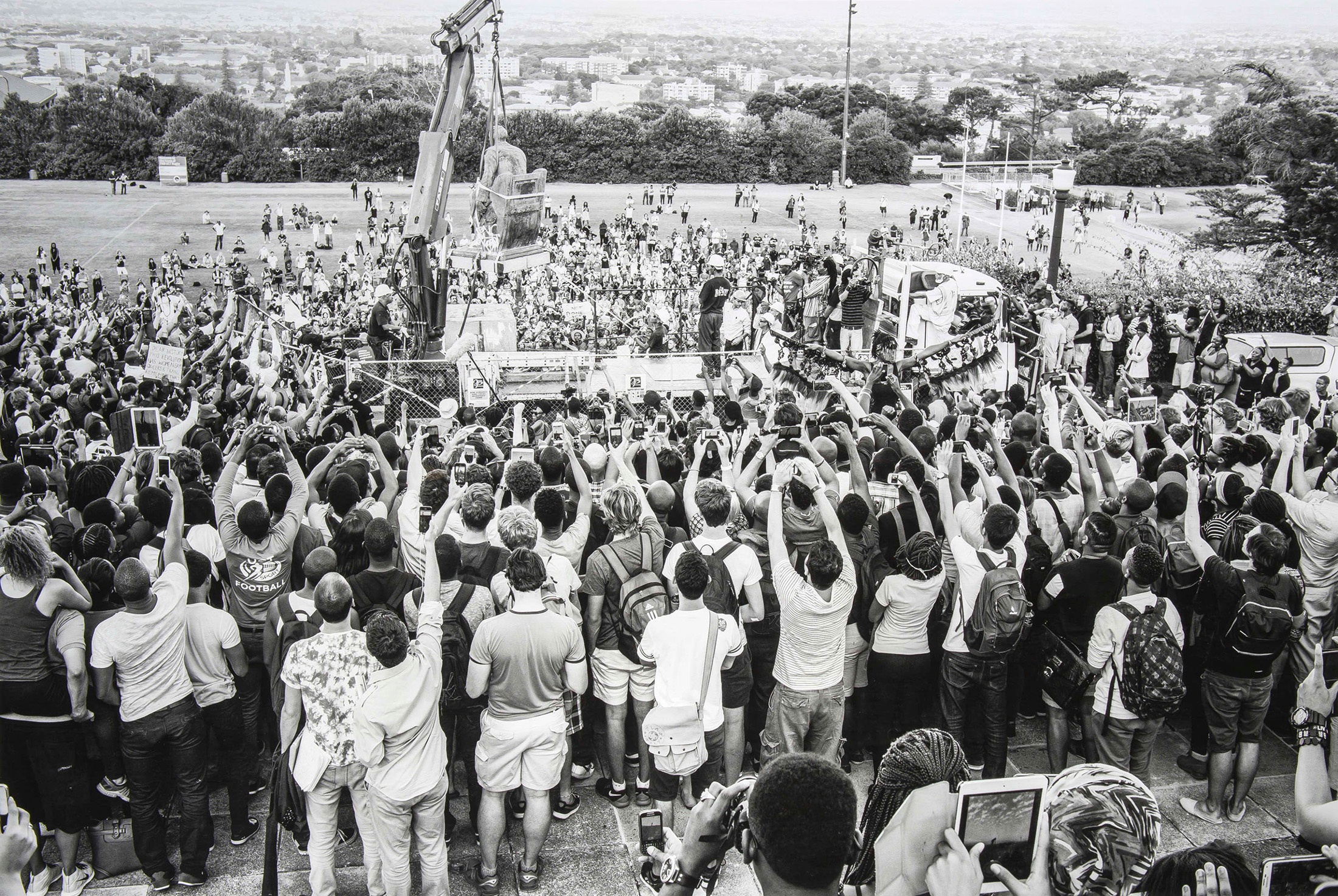David Goldblatt

The dethroning of Cecil John Rhodes offers a rare exception in Goldblatt’s work as a photograph of an event of national significance. While he did not otherwise document the student protests of 2015, he found in the removal of Rhode’s statue at the University of Cape Town an eloquent summary of the political moment. For a photographer preoccupied with structures of dominion, the scene proved more than conceptually compelling. “I was very affected by what was happening,” Goldblatt said of the moment photographed. “I felt that the students had done something remarkable. The students had convinced this granite-like institution to move this old piece of rock because it represented ideas that they found abhorrent.” The following year, he returned to the university to document what remained of the institution’s artworks destroyed by students or censored by faculty for the uncertain charge of ‘causing offence’. Shortly after, Goldblatt removed his photographic archive from the care of UCT.
This photograph is included in The Pursuit of Values, 2015, and Structures of Dominion and Democracy, 2018.
b.1930, Randfontein; d.2018, Johannesburg
“I was drawn,” the late photographer David Goldblatt wrote, “not to the events of the time but to the quiet and commonplace where nothing ‘happened’ and yet all was contained and immanent.” A preeminent chronicler of South African life under apartheid and after, Goldblatt bore witness to how this life is written on the land, in its structures or their absence. Unconcerned with documenting significant historic moments, his photographs stand outside the events of the time and yet are eloquent of them. Through Goldblatt’s lens, the prosaic reveals a telling poignancy. Even in those images that appear benign, much is latent in them – histories and politics, desires and dread. His photographs are quietly critical reflections on the values and conditions that have shaped the country; those structures both ideological and tangible. Among his most notable photobooks are On the Mines (1973), Some Afrikaners Photographed (1975), In Boksburg (1982), The Structure of Things Then (1998), and Particulars (2003).